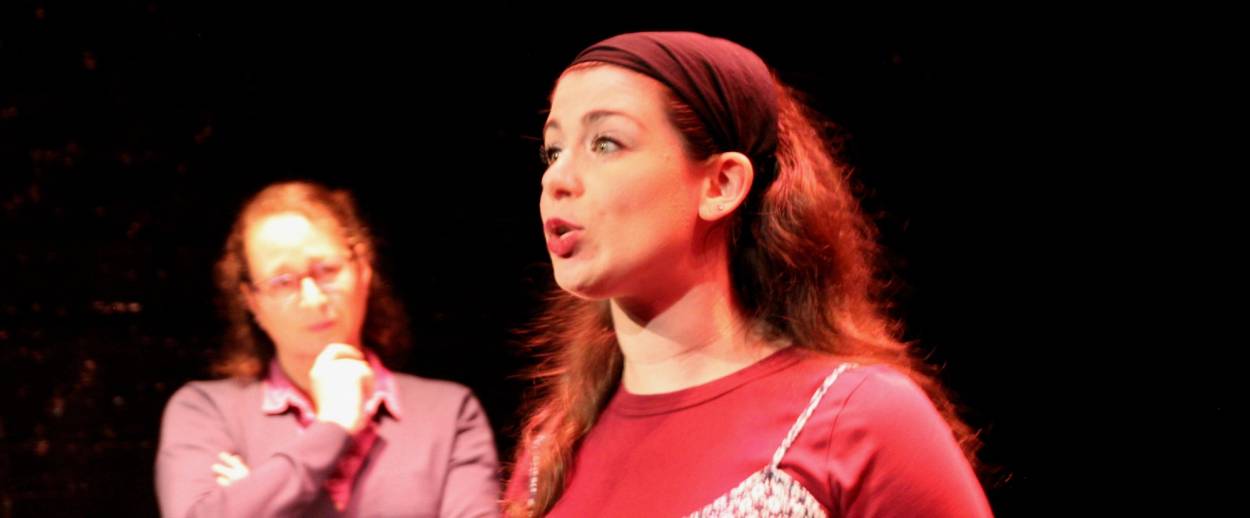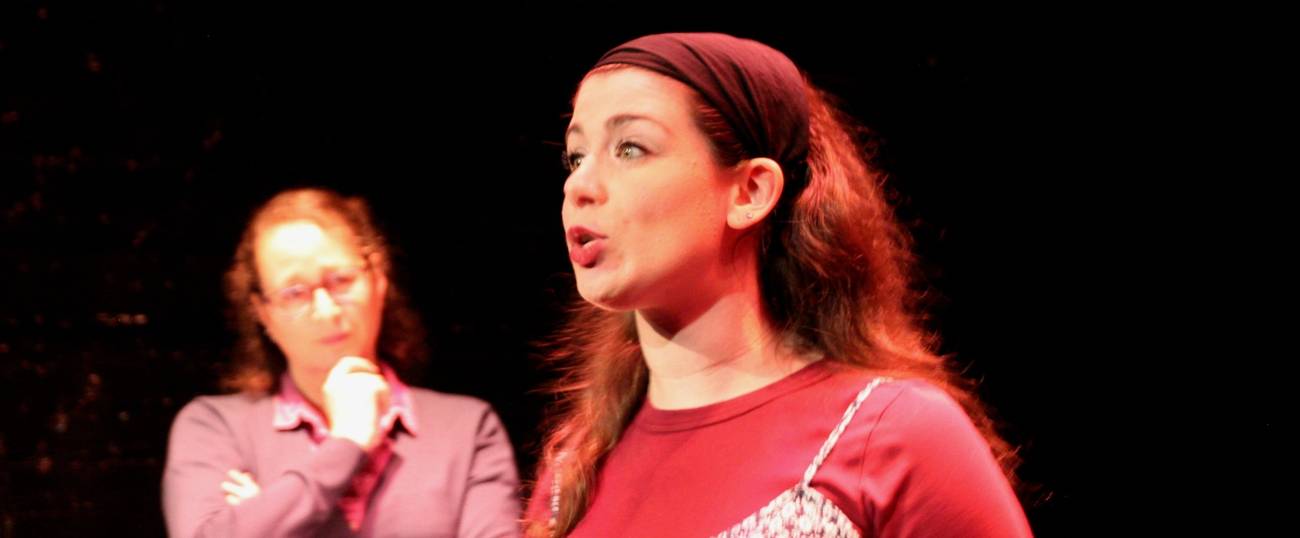A ‘Baal Teshuvah’ Takes the Stage
A new play explores how Judaism divides a Jewish family




The words “baal teshuvah” have a lot of weight for Jews. For the observant, it can feel celebratory, the phrase literally translates to “master of return.” Some Jew from a less religious background has found Orthodoxy. For others, they’ll say that a friend or family member “flipped out,” left them behind as they pursue a lifestyle that can seem alien, even hostile.
A new play at the New York Fringe Festival explores that divide: Observance is a respectful, nuanced lens into ways that faith, for all its benefits, can do more to drive families apart than bring them together. A young woman’s visit to Jerusalem turns into an all-out religious transformation, as she begins donning long dresses, keeping kosher and Shabbat, and unintentionally, creating a wedge between herself and her loved ones back home.
Gabby Goldblum (played sharply by the show’s playwright, Elyssa Nicole Trust), is a Connecticut-raised, dyed-in-the-wool secular Jew. Her family is culturally Jewish, but she’s had virtually no encounters with religion. At the behest of her grandmother, she decides to study abroad in Israel for a semester.
She needs to get away, since losing her sister to cancer, she’s been adrift—using too much marijuana, exhibiting angry outbursts, getting into trouble at school. The only source of stability in her life is her supportive boyfriend Noah (Chris Stahl), a secular Jew as well. But in Israel, she’ll know no one.
Despite her lack of knowledge about religious Judaism and her scorn for practices that seem strange to her, Gabby is drawn to Orthodoxy almost immediately. Through a Five-Towns-raised-Stern-College-attending roommate (Lauren Schaffel), Gabby begins exploring Judaism and finds that for the first time since her sister’s death, she can feel peace. And so, she dives in, headfirst.
Gabby’s parents are puzzled by this change; to them, Judaism is about food and family, and Orthodoxy seems regressive and archaic. Noah’s encouragement is unsurprisingly pushed to a breaking point when he learns that his girlfriend’s observance now includes no touching members of the opposite gender.
“I would rather her be a slut,” laments her mother, who consistently asserts that the Orthodox Jews of Israel have brainwashed her. Gabby (now going by Aviva) may have eased her inner turmoil in Israel, but the friction between her secular loved ones increases. Her parents feel judged for their secularism and that her expectations for them accommodating her are unreasonable. Gabby insists that they’re not trying to understand or support a lifestyle in which she’s found great meaning. Trust has written compelling characters with strong points of view. To see them butt heads is inevitable; the same arguments play out over and over again, but avoid feeling repetitive because the pain is fresh every time.
While Observance allows for a diversity of perspectives about Orthodoxy, it presents an “all-or-nothing” attitude towards what that looks like. In part, this is because the brand of religiosity Gabby encounters self-brands as the one true way; and that Gabby falls into the common baal teshuvah pattern of wanting to take on all obligations at once, with the strictest interpretations feeling most authentic.
Observance is well-acted (full disclosure: a friend of the critic is in the cast), and evenly directed by Susanna Wolk. This play conjures the familiar statistics, that a relatively small minority of American Jews identify as Orthodox, but it’s the fastest-growing sect (due more to childbirth rates than secular Jews switching sides). What does it mean when the face of American Jewry becomes, well, more bearded? Animosity between different groups of Jews is millennia old, but it never loses its sense of urgency. Can Jews with drastically different viewpoints ever really understand one another?
“Jews are a minority and we need to stick together,” laments Gabby’s father. “If we do not accept each other, how can we expect the rest of the world to accept us? If the observant Jews turn against their own families because they practice differently from them, one day there will be no Jews.”
“The same goes for you, turning against me,” Gabby retorts.
And so the back-and-forth continues. Observance wisely offers no easy answers to the questions it presents, but in a show where each character simply wants to be truly heard, Trust gives everyone their say.
Observance has more performances with FringeNYC in downtown Manhattan at 7 p.m. on Monday Oct. 14 and Thursday Oct, 18, and 9:15 p.m. on Sunday Oct. 21.
Gabriela Geselowitz is a writer and the former editor of Jewcy.com.